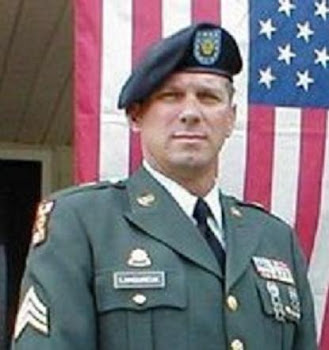February 24, 2010
Peter Breggin, M. D. - Testimony before the U. S. House of Representatives, Veterans Affairs Committee, Hearings on “Exploring the Relationship Between Medication and Veteran Suicide”
(excerpts of the testimony only - There is a lot of reading contained in the link below this post; and as you read this information, remember our active duty military will become Veterans. Many of the medications being given to our military have been given to Pat by the VA. When these soldiers come home - do you think they are just going to stop taking these medications? No, because these medications are all highly addictive psychotropic drugs. WAKE UP AMERICA - PTSD is on YOUR doorstep)
Statement of Peter R. Breggin, M.D.
Ithaca, NY (Psychiatrist and Author)
I am Peter R. Breggin, MD, a psychiatrist in private practice in Washington, DC, for several decades and now in Ithaca, New York. In the early 1990s I became the first physician to speak and write extensively about the new antidepressants causing violence, suicide and other abnormal behavioral reactions. I became the scientific expert for more than one hundred combined cases against Eli Lilly concerning Prozac-induced violence and suicide, and wrote many related books and scientific articles. In 2004 the FDA finally upgraded the warnings for all antidepressant drugs. The FDA’s language was virtually borrowed from one of my scientific publications (Breggin, 2003), which the agency had provided to each member of its review committee.
My conclusions in this testimony are based on dozens of citations listed in the scientific paper I have written specifically for this hearing, “Antidepressant-Induced Suicide and Violence: Risks for Military Personnel.” My conclusions are further based on hundreds of scientific citations in my published papers and in chapters 6 and 7 of my 2008 medical book, Brain-Disabling Treatments in Psychiatry, Second Edition (New York: Springer Publishing Company.
My other recent book, Medication Madness (2008, New York: St. Martin’s Press) presents more than 50 cases in which I have personally evaluated the medical and police records, and interviewed perpetrators and survivors. Based on voluminous scientific data and clinical experience, individuals with no prior tendencies toward suicide, violence or mania can be driven into these states by antidepressants.
...................... (excerpts below)
Evidence pertaining to violence and suicide induced by the newer antidepressants has been growing for years.
.....................
This paper focuses on evidence that antidepressants frequently cause suicide, violence and manic-like symptoms of over-stimulation……
......................
The official American Psychiatric Association Diagnostic and Statistical Manual of Mental Disorders (2000) is considered a consensus document drawing on current expertise in psychiatry. It is the most commonly used authority in the field and provides the official diagnostic system. In the section on mania and elsewhere, it makes clear that antidepressants can cause all the symptoms and behaviors associated with mania: “Symptoms like those seen in a Manic Episode may also be precipitated by antidepressant treatment such as medication...” (p. 361). Symptoms and behaviors associated with mania, including the medication-induced disorder, emphasize high-risk behaviors: “criminal” behavior, “antisocial” behavior, “irritability, particularly when the person’s wishes are thwarted,” “assaultive behavior,” “physically assaultive” behavior, “physically threatening” behavior, “suicidal” behavior, and shifts from anger to depression (pp. 359-261). By causing mild to severe degrees of manic behavior, antidepressants can cause suicide, violence and a wide variety of antisocial behaviors.
The official diagnostic manual also makes clear that SSRI antidepressants can cause akathisia, including suicide, aggression, and worsening of psychosis or behavioral dyscontrol (American Psychiatric Association, 2000, p. 801).
......................
A considerable body of research demonstrates that the newer antidepressants frequently cause mania.
......................
Studies of antidepressant-induced mania often cite cases of violence.
......................
The mixture of apathy and disinhibited aggressiveness reported by Healy and others is found in a portion of patients who act uncharacteristically violent as a result of taking SSRIs.
.....................
Antidepressant-induced apathy has become sufficiently common to be described in the American Psychiatric Press Textbook of Psychiatry (Marangell et al., 2003; also see Marangell et al., 1999). Patients who become apathetic lose their ability to care about others and may have an increased tendency toward both suicide and violence. (Breggin, 2008b).
......................
In my clinical and forensic practice I have evaluated more than fifty cases of violence, suicide, mania and crime induced by psychiatric medications, especially the newer antidepressants (Breggin, 2008a). In the cases that I reviewed, the suicidal, violent or criminal behaviors were unprecedented and seemed in retrospect to be very alien and inexplicable to the individuals. Recidivism was zero when the medications were stopped.
.....................
In many cases my expert reports lead to acquittal on the basis of involuntary intoxication, reduced charges, shortened sentences, or release from incarceration. Most of the cases were evaluated for legal purposes and some were clinical consultations or treatment cases.
......................
As the patterns emerged from re-examining these cases, I was struck by the fact that victims of drug-induced abnormal mental states and behavior almost never had an inkling that they were acting irrationally or that they were under the influence of their psychiatric drugs. This led me to formulate the concept of medication spellbinding (intoxication anosognosia)—the concept that psychoactive substances reduce the individual’s capacity to appreciate mental and behavioral adverse reactions (Breggin, 2006, 2008a&b).
......................
Familiarity with medication effects does not necessarily protect the individual from abnormal emotional and behavior reactions. In several of my cases (Breggin, 2008a), the victims of drug-induced abnormal behaviors were physicians.
......................
It is relatively easy to prove that antidepressants frequently cause serious and even life-threatening harm, while it remains difficult to prove that they are helpful.
......................
There is overwhelming evidence that the SSRIs and other stimulating antidepressants cause suicidality and aggression in children and adults of all ages.
.....................
….antidepressants frequently cause manic-like reactions, including loss of impulse control and violence….
.................
Little will be lost and much will be gained by stopping the prescription of antidepressants to military personnel. The military should rely upon the psychological and educational programs that are currently under development for preventing suicide and ameliorating other psychiatric disorders among service members. Antidepressants should be avoided in the treatment of military personnel.
......................
(link: http://veterans.house.gov/hearings/hearing.aspx?newsid=525 then look for "Witness Testimonies Panel I, Peter Breggin, MD, first item listed)
Sue Lamoureux's blog for her husband, J Patrick Lamoureux. Sue died on 24 August 2015.
PAT LAMOUREUX

PAT LAMOUREUX - One episode in a person's life, does not define the person.
Sunday, March 7, 2010
U. S. House of Representatives, Veterans Affairs Committee, Hearings - February 24, 2010
Subscribe to:
Post Comments (Atom)
"Grandpa Pat & Kain"

"Kain-man" the jokester....
Pat Lamoureux - Iraq 2003

"Pat is an extraordinary, thoughtful, kind and generous man...not to mention a wonderful friend, in which one could always count upon to be there when in need." (words of a long time friend)
Pat's Family

Mica & Heather, grandson Kain
No comments:
Post a Comment